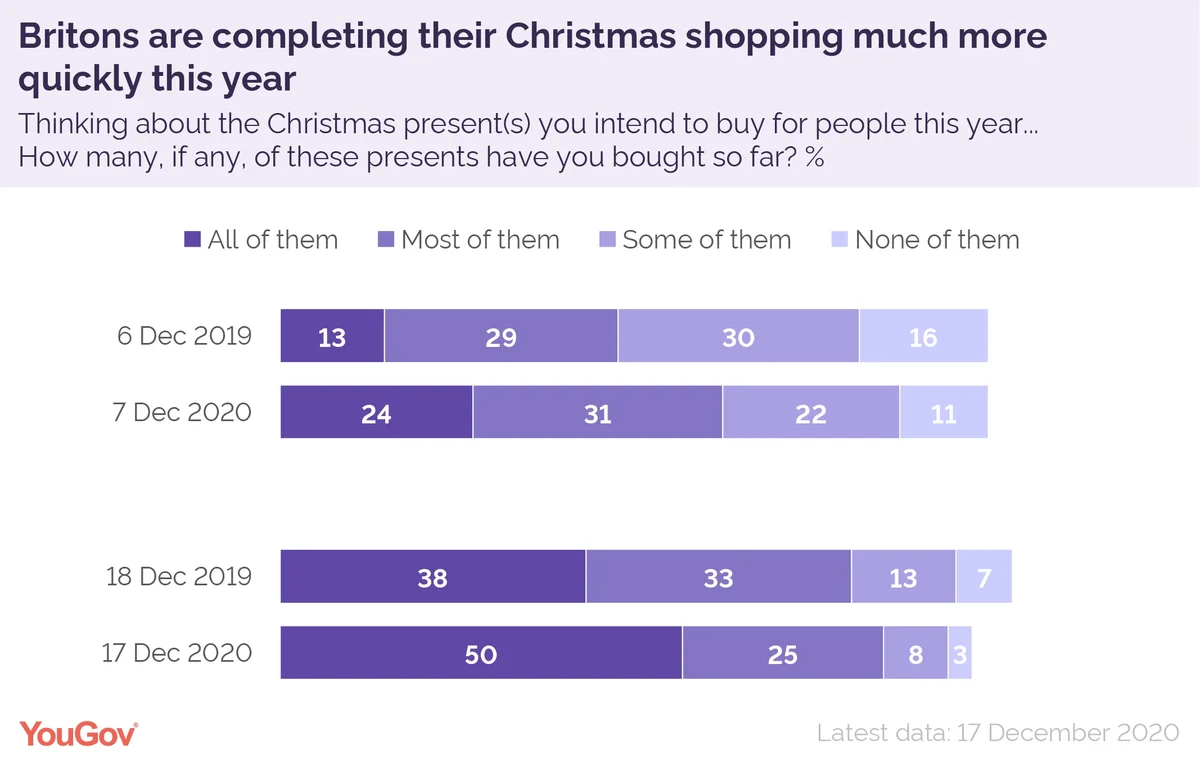People are progressing through their gift lists much faster than last year
With just a week to go until the big day, YouGov’s Christmas shopping tracker reveals that – as of 17 December – 50% of Britons have bought all their presents.
Another quarter (25%) say they have got the majority of their gifts. Only 3% say they haven’t bought anything yet.
YouGov has been tracking the progress of Britons’ yuletide gift-gathering over the course of December. At the beginning of the month, one in six Britons (16%) had already done all their purchasing, while a similar number (17%) had yet to start.
Progress has been slow for most of the month, with only 2% of Britons coming to have completed their shopping with each iteration of the tracker. That is until this past weekend, when the number of Britons saying they’ve now bought everything they intend to give jumping from 34% on the Friday beforehand to 42% by Monday.
There was another jump between yesterday and the day before, with the number of Christmas completers increasing six points from 44% to 50%. This coming weekend is the last weekend before Christmas, so we expected to see another noticeable jump by Monday.
Britons are getting their gifts in faster this year
The results also indicate that Britons are completing their Christmas shopping much more quickly this year than last year. In 2019, only 13% of Britons had managed to buy everything by 6 December; in 2020 that figure was almost double, at 24% by 7 December.
Similarly, the 38% who said they had completed their purchasing by 18 December 2019 is substantially behind the 50% who say they have done so now.

This is undoubtedly down to the shift toward online shopping brought about by the coronavirus restrictions. YouGov research has shown that the proportion of English shoppers intending to buy all or most of their presents online rose to 60%, compared to 48% saying they had done so the year before.






